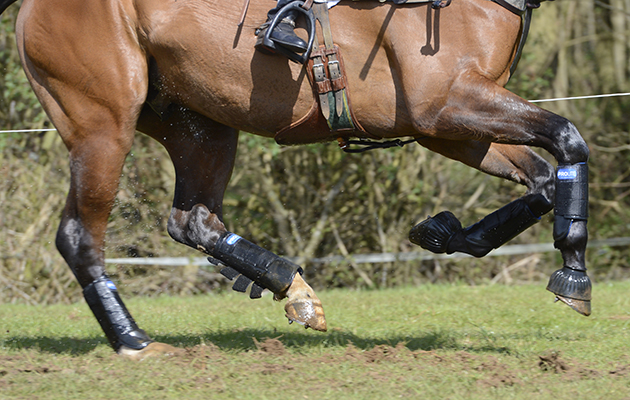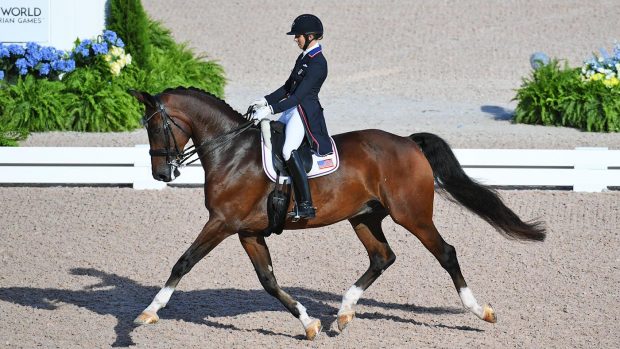The whole picture needs to be considered when making difficult life-and-death decisions.
The message was one of the key take-aways from the lively equine overtreatment debate at the Animal Welfare Foundation discussion forum (11 May).
Leading vets discussed what factors are involved when ascertaining where to draw “the line in the sand” when it comes to sport-horse and regular equine medicine.
Sarah Freeman, professor of veterinary surgery at Nottingham University, spoke about what will influence owners’ decision-making when faced with severe colic.
The point was raised that there are times horses are potentially over-treated, but also occasions when horses that may have a good prognosis are being under-treated.
Professor Freeman asked the forum to “question whether those are always the right decisions”.
“We can have the evidence and be decided about the animal’s welfare, but what the owner wants and thinks and they can manage becomes incredibly important. That decision is incredibly complex,” she said.
She added that there can be a conflict between “head and heart”, and that it is “incredibly important” to look at the whole picture. These include the horse’s welfare at the time, the pain he is experiencing, future prognosis and quality of life, the owner’s circumstances and other influences that may have a bearing on their decision-making.
For example, the owner’s relationship with the horse, their past experiences, societal pressures (including opinions from others on the yard), finances, plus whether they are able to deliver the care a horse will need after urgent surgery or veterinary treatment.
“If that owner is unable to care for that horse, not committed to care and can’t do that…it becomes incredibly important,” she said, explaining that feeds into the whole picture of the horse’s future wellbeing.
Insurance, too, was another consideration raised with both its advantages and the fact it is important to be mindful not to “put people on that conveyor belt if they do not want to be on it”.
Who treatment is really benefiting and whether the ends justify the means were underpinning themes across the debate.
The point was raised consistently that vets’ duty is to the care and welfare of animals, but where to draw the metaphorical line in the sand to prioritise that is a shifting and complex question.
Equine surgery specialist Bruce Bladon and Antony Clements, vet and managing partner at Baker McVeigh International, gave examples highlighting the role veterinary medicine plays in elite racing and horse sport. They spoke of horse welfare and helping horses be pain-free as their first priority, the benefits developments in equine medicine and surgery bring and how experience plays into helping them make those “line in the sand” decisions.
Dr Bladon spoke about the ethics in surgery and how those have shifted with the evolution of medicine. For example, being able to stabilise fractures as standing surgery under local anaesthetic is less risky than general anaesthesia and gives instant relief.
“The experience gained [in treating] racehorses is what allows veterinary hospitals to stock this expensive orthopaedic equipment and the experience is shared with other non-racehorses,” said Dr Bladon, highlighting the wider considerations within the debate.
Delving further into those considerations, the point was raised that funds from other sport-related procedures are part of the picture in funding veterinary hospitals to offer specialist knowledge, staff, equipment and “genuine 24-hour care” that benefit all kinds of horses.
Reducing wastage and enabling horses to continue careers where they receive high levels of care that go with their job were also raised in the debate.
As with any surgery, there will be an element of pain at some point and the forum considered how to gauge what pain is acceptable when you are making decisions on behalf of an animal.
Equine vet and animal behaviourist specialist Gemma Pearson questioned the way “success” is measured in treating horses with more emphasis on understanding what a horse is feeling.
“We are never going to know exactly what an animal is feeling, but we should never let perfect be the enemy of good,” she said.
She added there are lots of good tools now, such as pain scales, that can help vets and owners better understand what a horse is feeling and in turn, what we should and should not do.
There was a general consensus that as an argument in itself, the ends do not always justify the means at any cost – there is a line in the sand. But knowing where that line is without being able to see into the future can be a challenge.
“Our job as vets is to help animals and do no harm,” said Dr Clements. “Nobody wants to put a horse through colic surgery that ends up having a second colic surgery and ends up being euthanised. But we don’t have crystal balls.”
He added: “There is a line in the sand. It is not universally set and it is shifting, which doesn’t make it easy. But we all have to strive to reach that to the best of our professional abilities.”
You might also be interested in:

Subscribe to Horse & Hound magazine today – and enjoy unlimited website access all year round

Keeping horses comfortable and sound all summer long

Pelvic fractures in horses: all you need to know

British Dressage’s neurectomy rule clarification sparks de-nerving debate

Summer allergies in horses and how to combat them
Horse & Hound magazine, out every Thursday, is packed with all the latest news and reports, as well as interviews, specials, nostalgia, vet and training advice. Find how you can enjoy the magazine delivered to your door every week, plus options to upgrade your subscription to access our online service that brings you breaking news and reports as well as other benefits.




